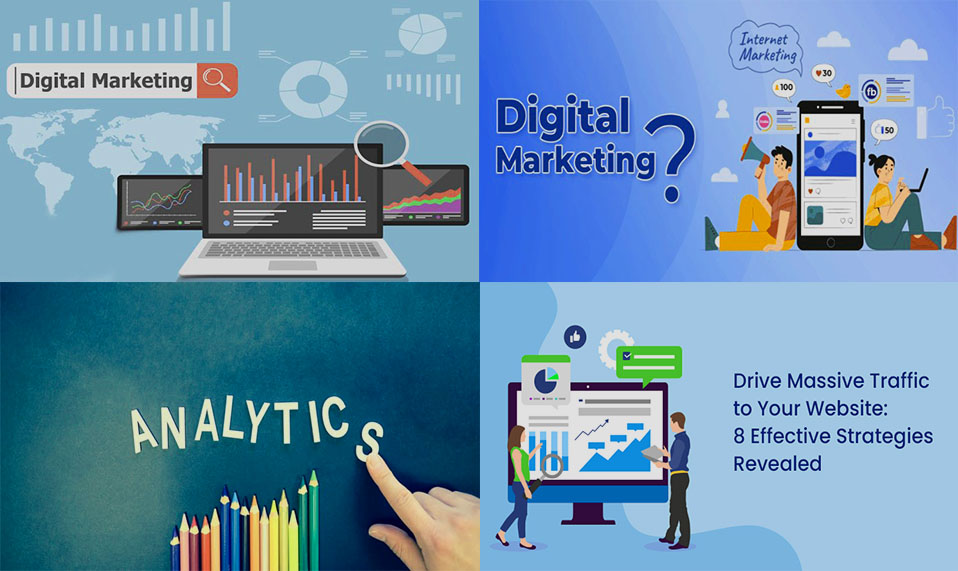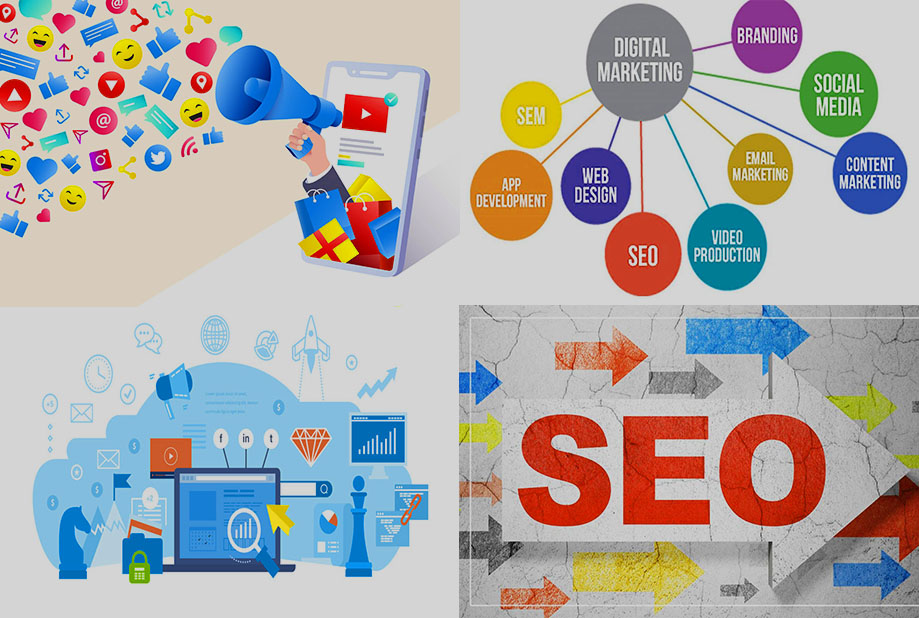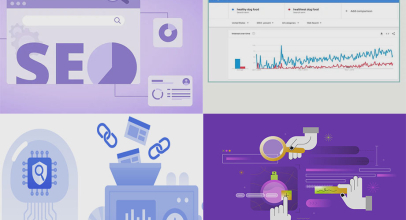
Internet marketing, also known as online marketing or digital marketing, has emerged as a pivotal strategy in the contemporary business landscape.
This comprehensive guide explores the intricacies, strategies, and trends that define internet marketing, shedding light on its diverse components and the crucial role it plays in the success of businesses in the digital era.
Internet marketing encompasses a broad spectrum of strategies and tactics aimed at promoting products, services, or brands through online channels.
The primary objective is to connect with a target audience, drive traffic, generate leads, and ultimately, facilitate conversions. In a world where online presence is paramount, mastering internet marketing is crucial for staying competitive and reaching a global audience.
Search Engine Optimization (SEO)
SEO is the foundation of internet marketing, involving strategies to enhance a website's visibility on search engine results pages (SERPs). This includes optimizing content, meta tags, and technical aspects to improve organic search rankings.
Content Marketing
Content marketing focuses on creating and distributing valuable, relevant content to attract and engage a target audience. Blog posts, articles, videos, infographics, and social media content are all part of an effective content marketing strategy.
Social Media Marketing
Social media platforms provide a powerful avenue for connecting with audiences. Social media marketing involves creating and sharing content on platforms like Facebook, Instagram, Twitter, and LinkedIn to build brand awareness, foster engagement, and drive traffic.
Email Marketing
Email marketing remains a potent tool for nurturing leads and maintaining customer relationships. It involves sending targeted messages to a subscriber list, promoting products, providing updates, and encouraging customer loyalty.
Pay-Per-Click (PPC) Advertising
PPC advertising allows businesses to bid for ad placement on search engines and websites. Advertisers pay a fee each time their ad is clicked, making it a cost-effective way to drive traffic to a website.
Affiliate Marketing
Affiliate marketing involves partnering with affiliates who promote a company's products or services and earn a commission for each sale or lead generated through their efforts.
Influencer Marketing
Influencer marketing leverages the popularity and credibility of influencers to reach a broader audience. Brands collaborate with influencers to promote their products or services, tapping into the influencer's dedicated following.
Online Public Relations (PR)
Online PR involves managing a brand's reputation through digital channels. Press releases, social media mentions, and online reviews all contribute to a brand's online image.

Define Clear Goals
Establishing clear and measurable goals is the first step in any successful internet marketing strategy. Whether it's increasing website traffic, boosting sales, or improving brand awareness, a well-defined goal guides the overall strategy.
Understand the Target Audience
A deep understanding of the target audience is crucial for crafting relevant and engaging marketing messages. Creating buyer personas helps tailor marketing efforts to the specific needs and preferences of the audience.
Integration of Channels
An effective internet marketing strategy often involves the integration of multiple channels. Coordinated efforts across SEO, content marketing, social media, and other channels ensure a holistic and cohesive approach.
Data-Driven Decision Making
Utilize analytics tools to track and analyze the performance of marketing campaigns. Data-driven insights help refine strategies, identify successful tactics, and optimize for better results.
Mobile Optimization
With the increasing use of mobile devices, optimizing marketing content and websites for mobile is essential. Responsive design and mobile-friendly content contribute to a seamless user experience.
Build a Strong Online Presence
Establishing a strong online presence involves more than just having a website. Consistent branding across various online platforms, including social media and review sites, enhances visibility and credibility.
Voice Search Optimization
With the rise of voice-activated devices, optimizing content for voice search is gaining importance. Natural language and conversational content become crucial for capturing voice search queries.
Video Dominance
Video content continues to dominate online consumption. Incorporating video into marketing strategies, including live streaming and interactive content, helps capture audience attention.
AI and Chatbots
Artificial Intelligence (AI) is revolutionizing customer interactions through chatbots. Automated chat systems provide instant responses, enhancing user experience and engagement.
Personalization
Personalized marketing experiences, from tailored content to product recommendations, are becoming increasingly important. Leveraging data to deliver personalized messages enhances customer relationships.
Augmented Reality (AR) and Virtual Reality (VR)
AR and VR technologies are being integrated into marketing campaigns to create immersive experiences. From virtual try-on experiences to augmented reality advertising, these technologies add a new dimension to marketing.

Saturation and Competition
The online space is saturated with content and competition. Standing out amidst the noise requires unique and compelling strategies.
Ad Blocking
The prevalence of ad-blocking tools poses a challenge to traditional display advertising. Marketers need to find innovative ways to reach audiences without being intrusive.
Data Privacy Concerns
Increasing concerns about data privacy and regulations, such as GDPR, impact how businesses collect and use customer data. Maintaining trust through transparent practices is essential.
Algorithm Changes
Frequent changes in search engine algorithms can impact the visibility of websites. Staying updated on algorithm changes and adapting strategies accordingly is crucial.
Internet marketing has become an indispensable component of modern business strategies, offering a dynamic and expansive toolkit for promoting products and engaging with audiences.
As technology evolves and consumer behaviors shift, staying abreast of emerging trends and adapting strategies accordingly is essential for continued success. A well-crafted internet marketing strategy not only boosts brand visibility but also fosters meaningful connections with the target audience, driving sustained growth in the digital landscape.
Embracing the diverse facets of internet marketing ensures that businesses can navigate the complexities of the online world and harness its vast potential for success.


